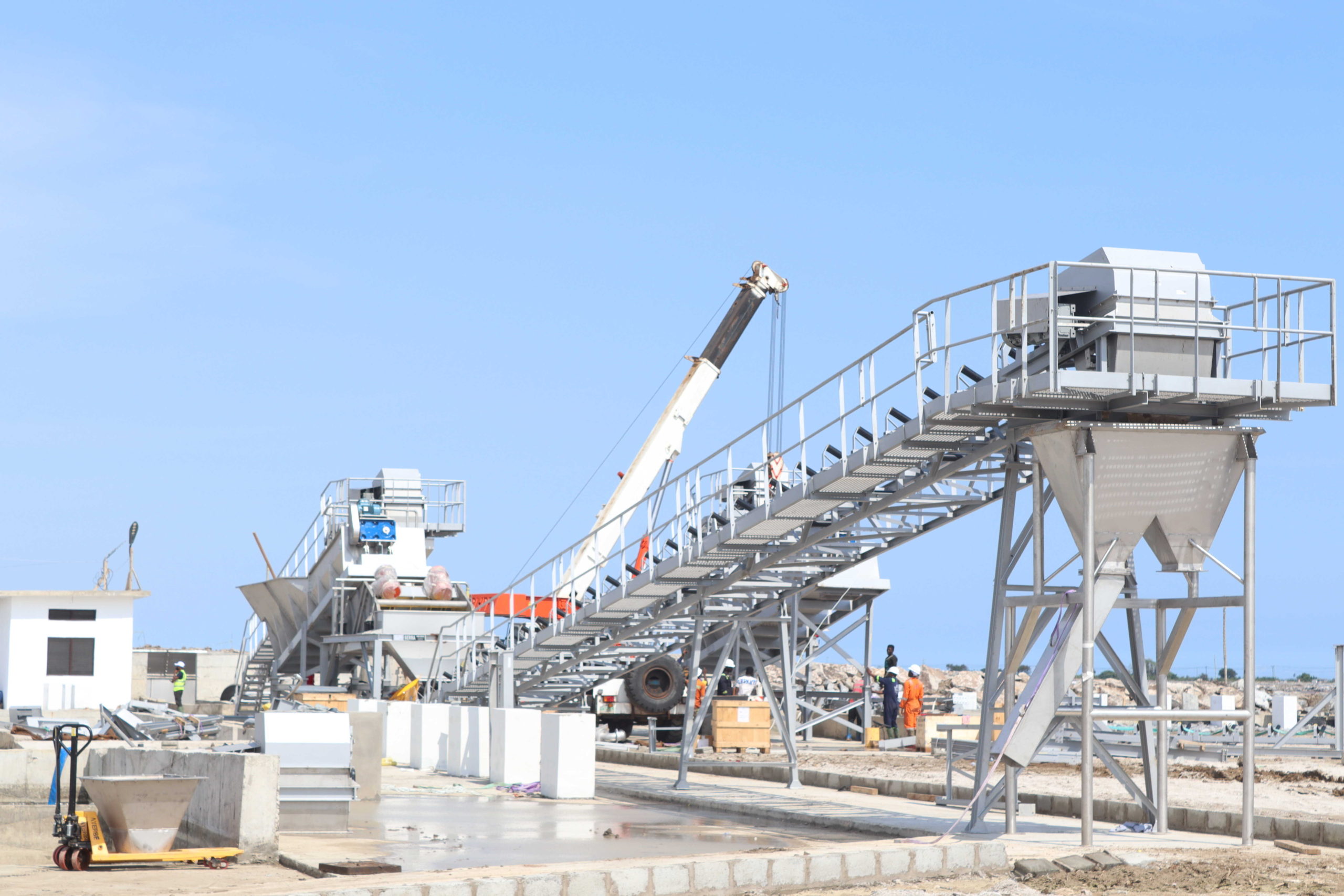SALT AND INDUSTRIALISATION-THE STORY OF ELECTROCHEM
IntroductionAs we navigate the fourth industrial revolution, there are a lot of key areas of focus, especially an organization’s ability to connect the Sustainable Development Goals to the overall context of their corporate strategy. Electrochem Ghana Limited (EGL) as a company has recently risen to the challenge by marking historic milestones in the salt industry. These milestones include the establishment of a large-scale salt industrial area, arguably the first of its kind in West Africa: A sizeable pump station for its intake operations, and a trial export of salt to the region.


The company commenced operations in January 2021 with a steely resolve to revamp the Songor Salt project, a national asset, to produce 1,000,000 metric tons of first-rate salt (of 99.9% purity) per annum to serve both the local and export markets.
Electrochem Ghana Ltd has established strategic partnerships with both local and international organizations with the relevant technical expertise in the industry, including a strategic international partner with over 62 years of experience, a firm of global renown with the deep technical know-how of the integral process of salt mining.
Within 18 months of operations, the company has integrated the concept of mechanisation to complement its robust local community development. “Ada Salt” which Electrochem produces has been known as one of the best in Africa—in quality, grade, and density—and it is the mainstay of the local community in Ada.



Spanning over 41,000 acres, the initial phase of the mining concession has been focused on four thematic areas—Rehabilitation, Project Development, Community Development and Environmental Sustainability.


The milestones that have been achieved in the past 18 months include the construction of a primary pump station at the intake point of the salt process which has immediately increased the capacity of pumping brine (salt water) from an initial volume of 100 litres per second to 5,250 litres per second into the evaporators and salt crystallisers.
The company has installed two washing line plants which can wash 120 tons of salt per hour each. The salt washing process completely distinguishes and enhances the quality of the harvested salt from its initial state when collected from the salt crystallisers. The quality of washed salt can measure about 99.9% purity.
This has been done to complement and enhance the existing manual mining process also known as artisanal mining and continuing to integrate the community who are the foundation and a key part of all activities in the concession. The strategy of Electrochem is to create a smooth blend of commercial and community growth.
Within the first year of its operations, Electrochem implemented a trial export of salt to validate the potential and power of Ghana’s export to the globe.
The Salt Industry
Salt production dates to centuries ago when countries like Mali and ancient Ghana traded resources such as gold, ivory, and salt with Arabic merchants from the Middle East. The country is noted for mining salt either from rocks or extracting crystallised solar salt from saline or concentrated seawater.
In 2020, 270 million metric tons of salt were produced globally, valued at about US$28.5 billion. Egypt, Tunisia, Morocco, Namibia, South Africa, and Ghana are the salt-producing countries in Africa. Egypt and Tunisia have a record of producing an averagely 1.6 metric tonnes of salt per annum. However, Ghana, having one of the largest salt concessions in Africa produces approximately 250,000 metric tons per annum. This is a huge disparity!
Has Ghana’s salt industry been a neglected sector for economic development?



The high demand for salt for both industrial and domestic use, has proven that there is a ready market for Ghana’s salt should it be utilised to its full potential as cocoa, gold, crude oil, and timber among other natural resources. The main driver for the surge in the global demand for salt is the chemical industry, in countries such as China and the USA.
The high demand for the commodity and the need to unleash the full potential of the salt industry in Ghana to boost the economy has become more persistent. And there is a need for inclusive and sustainable industrialisation coupled with innovation and infrastructure. This initiative riding on the barebones of Sustainable Development Goal nine (9) encourages organisations to incorporate technology and innovation into their business models to generate employment and income in the operational areas.
The Future
In the next five years, Salt production in Ghana is expected to add about US$ 2 billion to the Ghanaian economy.
Dr Daniel McKorley, the Chief Executive Officer, Chairman of the McDan group of companies, and investor for the Songor Salt Project is poised to position Ghana on the global map as a country housing one of the largest and best salt mines. In the next five years, Electrochem will become the leading salt-producing company in Ghana supplying various industries locally and globally.
He has indicated that “The salt industry has a lot of potential to impact and improve Ghana’s economy. We cannot leave such a resource to lie unused, we cannot leave the lagoon to the verge of extinction, and we cannot leave the Ada state undeveloped.”
He emphasised that introducing innovation and industrialisation in salt mining is in the right direction to improve the production of large quantities of salt.
“Ghana has the potential to serve both the local and the global market, let us not overlook that potential and the opportunities. I am investing in the salt industry because industrialisation is the new normal and I am ready to be part of it” he noted.
The future of the Ada State, the Greater Accra Region, and the country of Ghana can only look bright!
